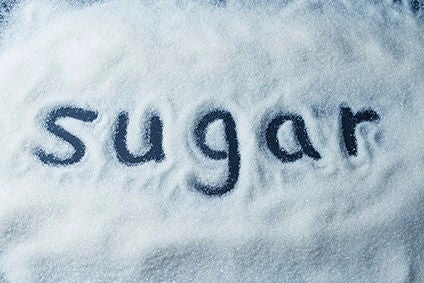
Food manufacturers have made the most progress in cutting sugar levels in yogurt and breakfast cereals but with limited advances in confectionery and puddings, according to an annual update from a UK government health body.
Amid government efforts to reduce growing obesity numbers among children in the UK, Public Health England (PHE) launched a campaign to lower sugar levels in food and drink products by 20% before the end of the decade. And its second-year progress report shows producers cut sugar in foods consumed in the home by 2.9% in terms of the weighted average sugar content per 100 gram.

Discover B2B Marketing That Performs
Combine business intelligence and editorial excellence to reach engaged professionals across 36 leading media platforms.
PHE, which is an agency falling within the Department of Health and Social Care, said branded labels from manufacturers of yogurt and fromage frais, and cereals, along with own brands from retailers in the same categories consumed at home, saw sugar content drop by 10.3% and 8.5%, respectively, followed by cakes (-4.8%) and sweet spreads and sauces (-4.6%).
While the targets are voluntary, the confectionery and puddings segments actually saw an increase in sugar levels of 0.6% and 0.5% per 100g in the in-home sector.
The Food and Drink Federation, which represents the country’s manufacturers, said despite the progress made it should be expected that not all food categories can meet the targets in such a short time.
Tim Rycroft, the FDF’s chief operating officer, said: “Today’s report from PHE shows that food and drink manufacturers are continuing to reformulate and change portion size to remove sugar from the nation’s diet. We have repeatedly pointed out that PHE set hugely aspirational targets and that these could never be met across all categories in the ambitious timeframe given.

US Tariffs are shifting - will you react or anticipate?
Don’t let policy changes catch you off guard. Stay proactive with real-time data and expert analysis.
By GlobalData“What it does highlight is that the challenges of sugar reduction vary greatly from category to category. Everyone is playing their part and we’ve already seen lots of great innovation since then, with plenty more in the pipeline.”
Campaign group Action on Sugar welcomed the progress made but was also critical that not enough is being done in some areas to support the directive.
Katharine Jenner, its campaign director, said: “Whilst it’s encouraging to learn that both sugary yogurts and cereals have been successful in the sugar-reduction programme, proving that reformulation is easily achievable, it is shameful that other manufacturers are dragging their heels and will likely fail to meet the 20% target. Every year more and more children are becoming obese.”
Meanwhile, a greater overall reduction of 4.9% was achieved in the foodservice sector – restaurants, pubs and cafes – although PHE admitted the facts were based on “limited data”.
Almost the same categories led the decline in sugar content as the in-home sector, but with puddings making better progress with a reduction of 15%. However, biscuits witnessed a marginal drop of 0.4%, while chocolate confectionery saw sugar levels rise 3.6%.
“When looking at simple average sugar levels, data suggests that the out-of-home sector has made more progress; however direct comparisons should not be made due to the data available,” PHE noted in its update report.
Duncan Selbie, the organisation’s chief executive, added: “We are seeing some encouraging progress from the food industry. Our second-year report shows some food categories reducing sugar faster than others but this is realistic at this early stage. We are confident that the industry as a whole understands their responsibility to step up and deliver for children and their families.”
Providing some context, PHE said a third of children leave primary school either overweight or obese, with obesity levels in year 6 children at record highs. To tackle the problem, the agency said food manufacturers have three options to meet the 20% target: reduce sugar levels through reformulation, produce smaller portions, or encourage consumers to purchase lower or no sugar products.
The FDF’s Rycroft continued: “Reformulation and portion sizing are the measures that will have the greatest impact on obesity. If Government wants companies to remain engaged with the programme then it must let them deliver what they have already been asked to do – work that is already making a real difference.”
The introduction of a sugar tax on drinks in the UK on 6 April last year has gone some way to encourage consumers to switch to lower sugar options.
Overall, data from the Soft Drinks Industry Levy shows a 28.8% reduction in the sugar content per 100ml in retailer own brand and manufacturer branded products consumed at home, PHE said. And in foodservice, the same sector saw a 27.2% drop.
“There was a consumer shift towards zero or lower-sugar products, with sugar purchased from soft drinks decreasing in all socio-economic groups,” PHE noted.
Jenner at Action on Sugar said the levy should be extended to other drink products in the dairy sector and also calorie-rich processed foods.
She added: “The government should be proud that they were brave enough to introduce the soft drinks levy which has been remarkable in that it allowed for significant sugar reduction in drinks. It is imperative that this momentum and levy continues and is applied to calorie-dense processed foods and milk-based drinks that meet an agreed criterion set by the government.
“Fat is a bigger contributor to calories in the diet than sugar and therefore essential that manufacturers are encouraged to reduce both in order to tackle the UK’s unhealthy eating habits and the excessive calorie intake.”





